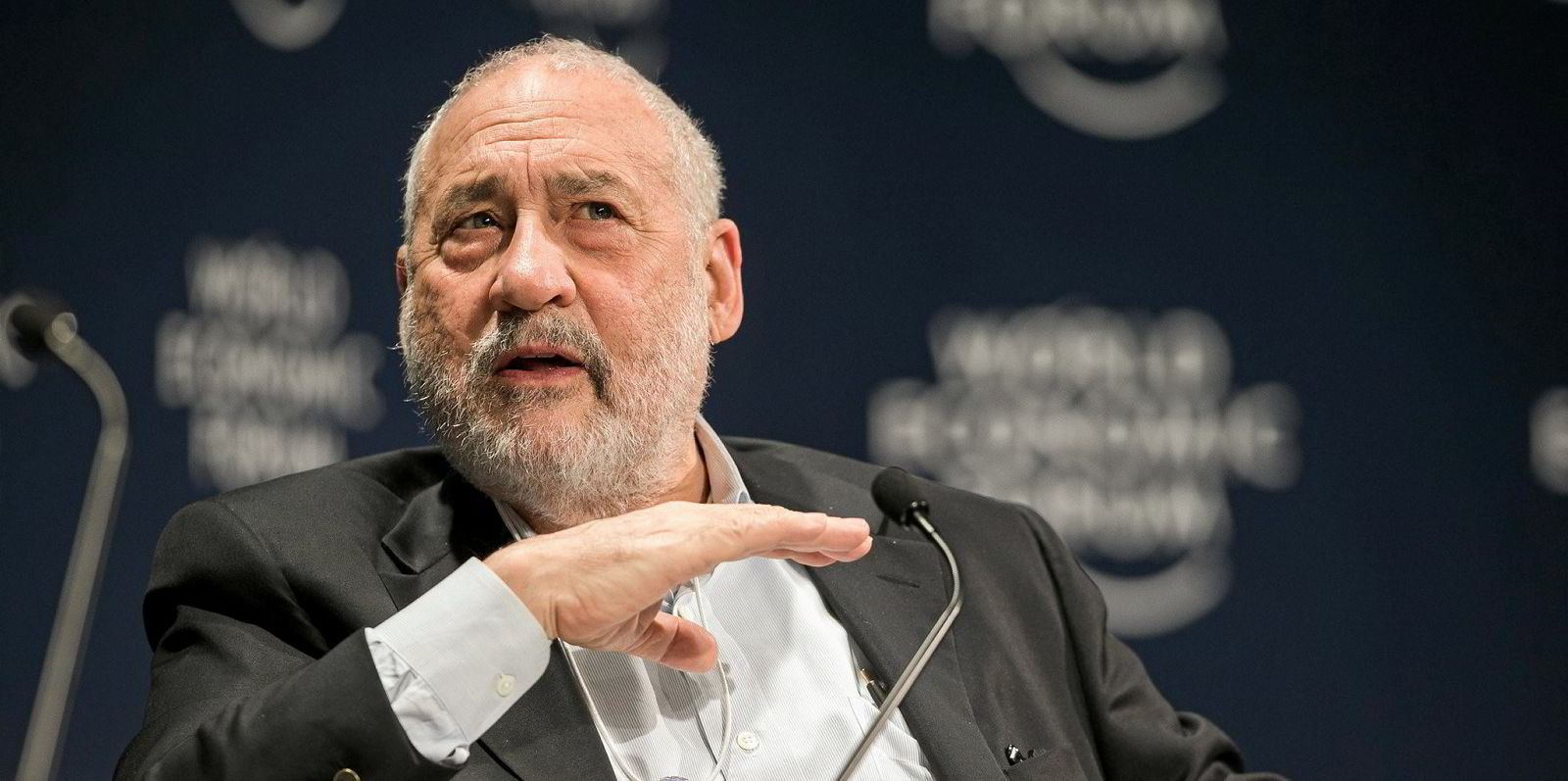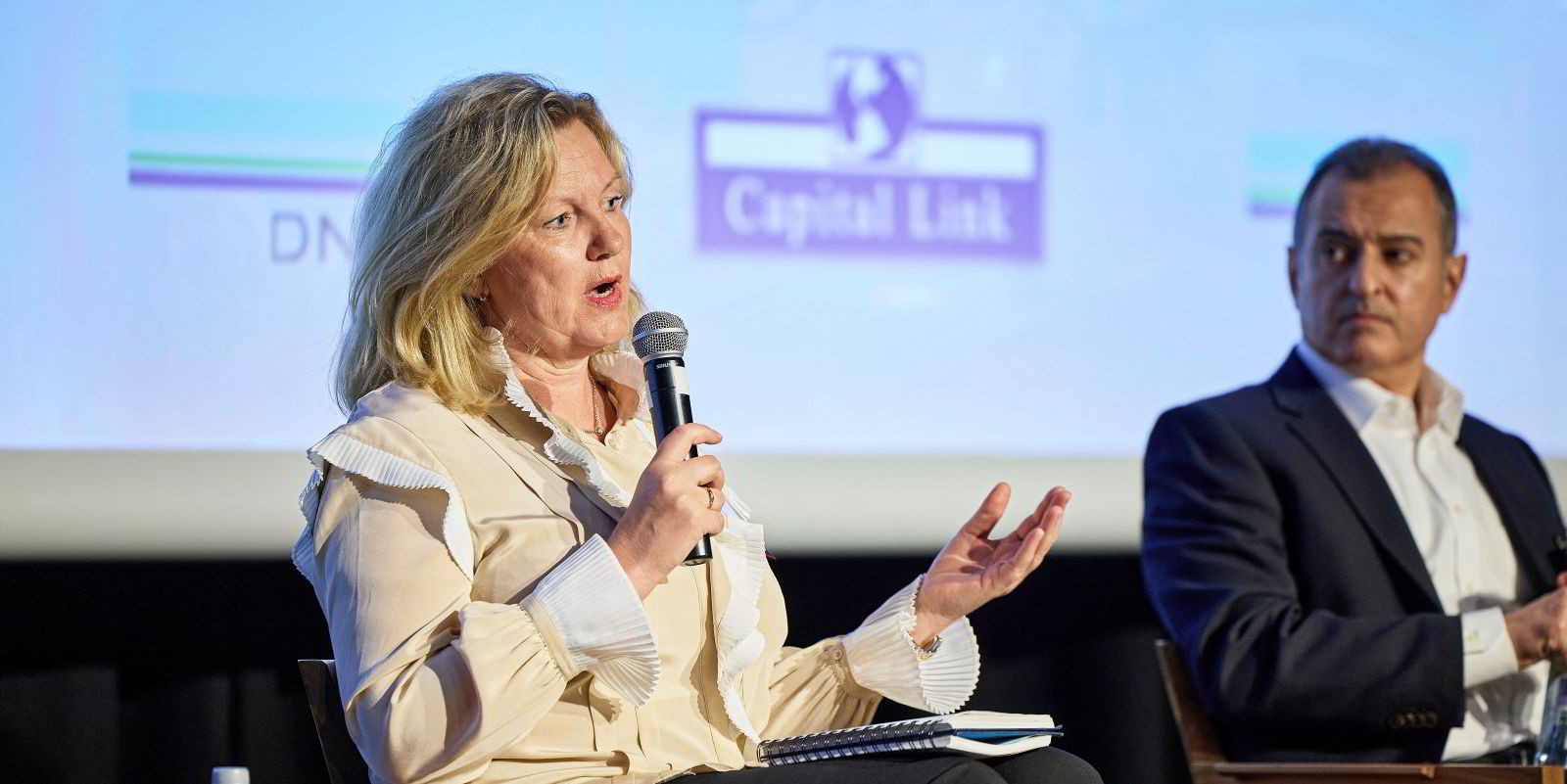A Nobel Prize-winning economist has warned the world’s need for shipping is waning.
Joseph Stiglitz, former World Bank chief economist and senior vice president, identified five factors set to influence the global economy in the coming years — and slash demand for shipping along with it.
“These are challenges the shipping industry is going to have to face,” he said during Nor-Shipping’s Ocean Leadership Conference on Tuesday.
“We’re going to be net neutral by 2050. That’s 27 years. [One challenge] is making decisions today for the next 40 years and so bringing these forces into account when it comes to investment decisions is going to be really critical.”
Most significantly, he said the fight against climate change means there will be fewer, and eventually zero, oil and natural gas cargoes to move.
Those cargoes make up 40% of all shipping volumes.
“For shipping, it’s a very big deal,” Stiglitz said.
“If we take serious, and I think we should take seriously, the goal of net [carbon] neutrality by 2050, that means there won’t be the shipping of those fossil fuels.
“That’s a reality we have to come to terms with. It’s not just making ships greener, but realising demand for what’s being shipped will change.”
Additionally, rising tensions between the US and China has led to the so-called “nearshoring” of the production of certain goods, meaning fewer goods to move, he said.
Further, services are making up a larger part of the globalised economy and will be aided by artificial intelligence.
“That’s a good thing. Services on the whole are less bad for the environment. They emit less carbon,” Stiglitz said. “But from the point of view of the shipping industry, they represent a challenge.”
He also identified the risk that, without adequate fiscal and monetary support, the global economy could return to the low growth trends seen before the Covid-19 pandemic.
The International Maritime Organization is increasingly expected to adopt net zero by 2050 emissions targets at an upcoming committee meeting in July.
The more ambitious revised goals will keep shipping in line with the Paris Agreement on climate change, although it is opposed by developing economies as they view the rules as hindering their growth.
“It’s a fundamental reinventing of our global economy and I think our global society,” Stiglitz said.
“For 200 years, we’ve been dependent on fossil fuels and this is a real, fundamental break.
“I think we really are at the point where we can rise to the challenge and make these fundamental changes, including what was described as the hard-to-change sectors of the economy. I think it’s not only a good thing, but we don’t have any choice.”





